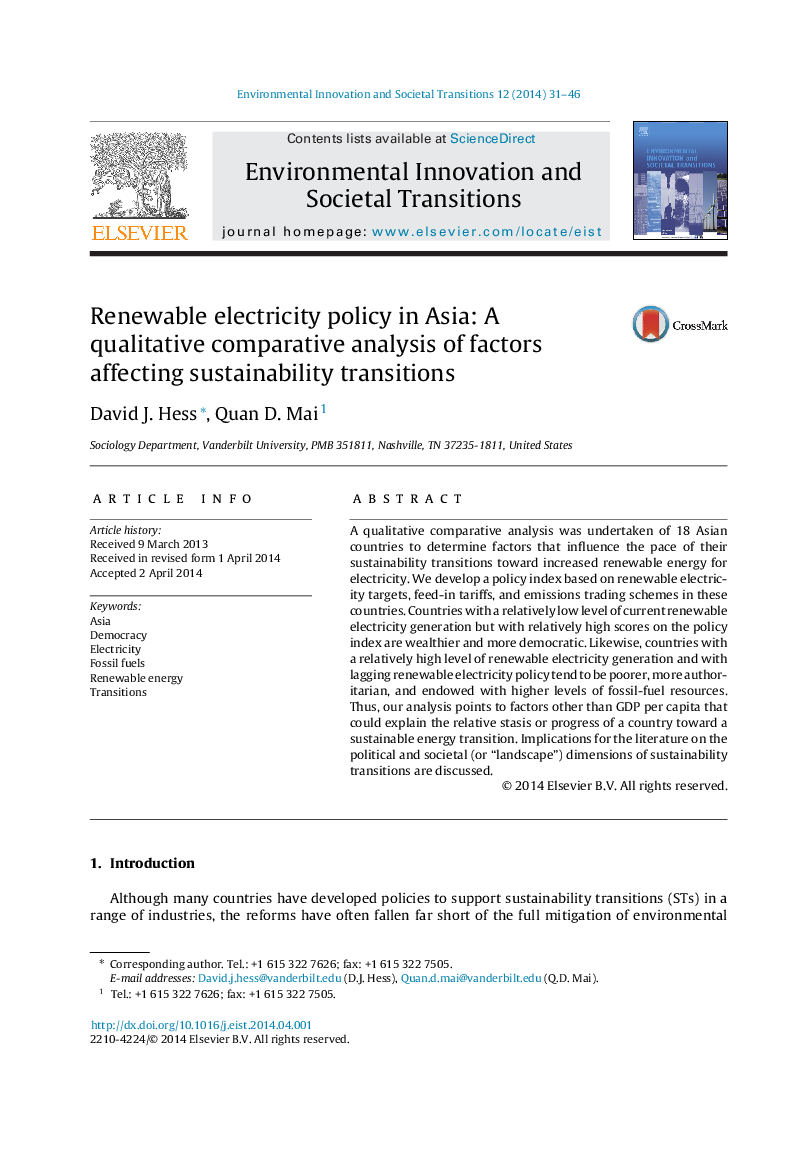| Article ID | Journal | Published Year | Pages | File Type |
|---|---|---|---|---|
| 108201 | Environmental Innovation and Societal Transitions | 2014 | 16 Pages |
•Asian countries with higher levels of renewable electricity have higher measures of authoritarianism, poverty, size, and fossil fuels.•Asian countries with lower levels of renewable electricity are wealthier and more democratic.•Asian countries with advanced renewable electricity policies are wealthier and more democratic.•Asian countries with lagging renewable electricity policies have higher measures of authoritarianism, poverty, and fossil fuels.
A qualitative comparative analysis was undertaken of 18 Asian countries to determine factors that influence the pace of their sustainability transitions toward increased renewable energy for electricity. We develop a policy index based on renewable electricity targets, feed-in tariffs, and emissions trading schemes in these countries. Countries with a relatively low level of current renewable electricity generation but with relatively high scores on the policy index are wealthier and more democratic. Likewise, countries with a relatively high level of renewable electricity generation and with lagging renewable electricity policy tend to be poorer, more authoritarian, and endowed with higher levels of fossil-fuel resources. Thus, our analysis points to factors other than GDP per capita that could explain the relative stasis or progress of a country toward a sustainable energy transition. Implications for the literature on the political and societal (or “landscape”) dimensions of sustainability transitions are discussed.
